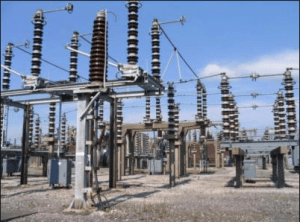Only few Africans have access to electricity – ECOWAS President
 Mr James Victor Gbeho, President of the Economic Community of West African States (ECOWAS) Commission, has said approximately only 20 per cent of the African population has access to electricity.
Mr James Victor Gbeho, President of the Economic Community of West African States (ECOWAS) Commission, has said approximately only 20 per cent of the African population has access to electricity.
“A characteristic of the ECOWAS region is the low access to energy services by its population, with the region having one of the lowest consumptions in the world,” he said.
Mr Gbeho said these in a speech read for him by Mr Johnson Boanuh, Director of Environment at the ECOWAS Commission, at the opening session of a three-day ECOWAS Regional Centre for Renewable Energy and Energy Efficiency (ECREEE) workshop, in Accra on Monday.
The event was organised by the ECOWAS Commission in collaboration with the United Nations Industrial Development Organisation, United Nations Development Programme and the United Nations State Agency for International Development, on the theme: “Accelerating Universal Energy Access in West Africa through the use of Renewable Energy and Energy Efficiency.”
The workshop provided a platform for participants to review the energy situation in the West Africa sub-region, and also to define and adopt regional intervention strategies for application of renewable energy and energy efficiency technologies to increase access to energy services towards the attainment of the white paper targets.
Mr Gbeho noted that the role of renewable energy and energy efficiency technologies and services should not be ignored with the regions vast, wind and bio-energy resources since the potential to harness the economic resources of the ECOWAS region could effectively contribute towards poverty reduction.
Mr Gbeho said presently more than 60 per cent of community’s electricity generation capacity was based on fossil fuels, noting that the recent unprecedented escalation of oil prices has demonstrated the potential dangers of such reliance with devastating consequences on the economies in the region.
“The prospect of oil prices volatility provides additional impetus to invest in clean, efficient and renewable technologies that will provide a new driving force for economic growth and development,” Mr Gheho said.
Mr Mahama Kappiah, Executive Director of ECREEE, said it was significant that the role of renewable energy and energy efficiency was being examined, especially given the interrelated challenges facing the region such as energy poverty, energy security and climate change mitigation.
He said the ECOWAS region has already taken a pioneering role in the promotion of renewable energy and energy efficiency through a regional approach and it has gradually taken steps to mainstream renewable energy and energy efficiency into its activities and polices.
Mr Kappiah said the ECREEE would work to improve energy security and reduction of negative energy related externalities associated with energy production and consumption through the dissemination of renewable energy and energy efficiency technologies and services.
Alhaji Inusah Fuseini, Deputy Minister of Energy, said with the collaboration of the development partners, Ghana would continue to explore ways of making energy a fundamental right of all its citizens.
He said energy resources options available to Ghanaians included the hydro and thermal power, renewable, hydrocarbons and biomass, indicating that biomass particularly wood fuel continued to be the dominant energy option used by Ghanaians.
Alhaji Fuseini commended the organizers of the workshop and expressed the hope that more areas would be deliberated upon to better address challenges facing the renewable energy sector of the region.
ECREEE has sought to actualize its vision and mandate of developing viable renewable energy and energy efficiency markets in the ECOWAS region.
In addition, it is also to contribute to the sustainable economic, social and environment development of West Africa by improving access to modern, reliable and affordable energy services.
Source: GNA
